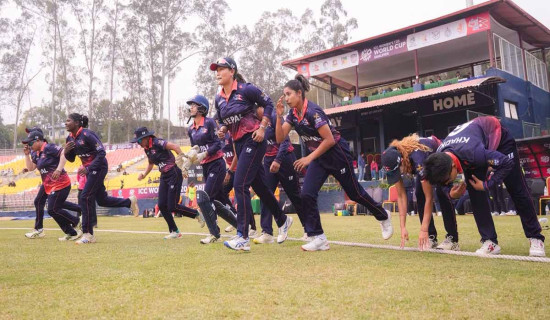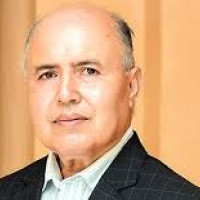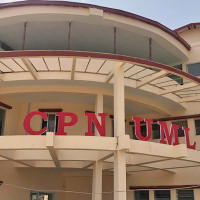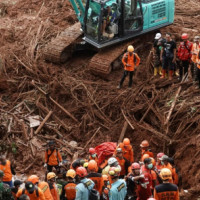- Saturday, 24 January 2026
Deliver On Pledges, Win The Trust Of Youths
With the country ushering in a federal democratic republic 17 years ago, the government has undergone profound socio-economic transformations. Power shifted from the monarchy, where leadership was determined by hereditary succession, to the people, who now hold ultimate sovereignty. Promulgated in 2015, the constitution has embraced a socialist-orientated economic model that seeks to institutionalise landmark political achievements and consolidate republican order. The elections to the three-tier government twice deepened the grassroots democratic practices and promoted people's participation in the decision-making and development process.
Still, there is a misgiving that progressive provisions and programmes have yet to be fully implemented for the broader benefit of the people. As we are marking Republic Day, it is imperative to ponder over the gains and shortcomings of the republican system so that it can be further reformed and refined.
Empowerment
"The system has empowered citizens and enhanced inclusive governance," said Pradeep Gyawali, CPN-UML deputy general secretary. Gyawali noted that the republican set-up had allowed people to exercise full democracy, ended all vestiges of autocracy, and provided democratic methods to end political unrest, with significant progress in including marginalised groups. The system of governance has been designed to decentralise authority, strengthen public service mechanisms, and expedite development at the local level, he added.
Visibly, the political parties have failed to deliver on the promises made in the Constitution and their poll manifestos. Despite scores of rights coded into the national charter, significant socio-economic transformation remains elusive. Gyawali acknowledged that a substantial gap remained between public expectations and service delivery. "People have high hopes, but limited resources and a leadership still learning the governance process have made it hard to meet their aspirations." Political instability, triggered by frequent government changes and shifting priorities, has also hindered the effective implementation of the system in its true spirit.
CPN Maoist Centre general secretary Dev Prasad Gurung highlighted that the achievement was made possible by the sacrifices of the people, the relentless struggle of political parties, and their shared commitment to democratic values. However, he criticised the state's inability to bring about drastic socio-economic changes, stating that Nepal has remained stuck in a capitalist republic model. "A true republican system must be linked to transformative change in the people's lives."
He said that Nepal's republican journey began with the political consensus, initially following the path of a capitalist republic. "This model is often necessary during a transitional period. However, remaining in this framework for too long can pose serious challenges." Gurung also pointed to widespread corruption and commission-driven practices, which he said had prevented people from enjoying the fruits of the system. "The current system has prioritised creating a favourable environment for monopoly capitalists." He also called for replacing monopoly capitalism with a people-centric or socialism-oriented republic based on national industrial capital to bring transformative changes in the economy and production systems. "However, political parties have failed to reach a consensus on this proposition."
Gyawali believes this is an entirely new system for Nepal, but institutionalising and making it fully functional takes time. He added that although 18 years may seem long in a person's life, marking the transition to adulthood, it is a short span in the context of political transformation.
The republican system now faces a new threat in reviving pro-monarchical protest. Many people, particularly the youth, have become increasingly disappointed with the political leadership due to unfulfilled promises, political instability, rampant corruption, economic stagnation, poor governance, and lack of accountability. The growing dissatisfaction has given rise to alternative narratives that link stability and unity with the erstwhile kingship. Major party leaders have expressed their concerns over this detrimental trend.
Nepali Congress leader and National Assembly member Krishna Prasad Sitaula said monarchs were repeatedly allowed to mend their ways. "But they continued to repeat the same mistakes by locking up party leaders and seizing power through coups. This impelled the NC to join the movement to abolish the king."
Gurung attributed the mass disappointment to the slow development and service delivery pace. These growing tensions may undermine the legitimacy and long-term stability of the system. The division among political parties and the failure to deliver on pledges created space for pro-monarchist and regressive forces to exploit the growing public despair. He said they occasionally disrupt the political environment and mislead the public to dent the system and reverse past political gains.
Gyawali noted that younger generations without monarchy experience often take the current system for granted. In contrast, those who lived through that era understand the cost of freedom. He noted that ever-pervasive digital and social media brought challenges and opportunities, with a greater impact on emerging systems like Nepal's. "Negative narratives and disinformation have fuelled public frustration."
Gyawali stressed that while the media must be critical as a democratic watchdog, it should also act responsibly and help raise political awareness among the youth. "Democracy is evolving, and the media must play a constructive role in strengthening it."
Sitaula emphasised the need for the state to focus on good governance, inclusiveness, effective service delivery, and development to dispel public distrust. "The government should also adopt long-term policies, complete unfinished national pride projects, advance hydropower development, and move forward with broader initiatives for economic reforms. The key priority is to amend the shortcomings of the Constitution and ensure sustained economic growth."
No to monarchy
All three leaders have also ruled out the possibility of the return of monarchy but warned that the regressive forces could threaten political stability. They also stressed the need for national consensus on key issues to protect political gains and guide the country towards prosperity and comprehensive development.
Educating the young people about the parties' over seven-decade-long struggles for establishing the democratic federal republic inspires them to defend it. But this is not enough. The republican forces must win their trust by translating their commitments into action.
It is high time to move beyond partisan interests and fully implement the Constitution in both letter and spirit. Promoting the rule of law, curbing corruption, and creating people-centric governance is a must to maintain stability, create jobs, and attain long-term economic growth. Proportional inclusion, equal participation, and implementing 31 fundamental rights add vigour to the republican order, making it citizen-oriented and functional.
(Adhikari is a journalist at The Rising Nepal.)






-original-thumb.jpg)

-square-thumb.jpg)





-original-thumb.jpg)


